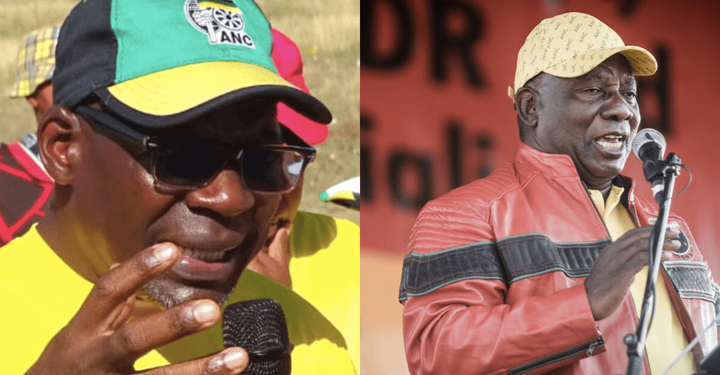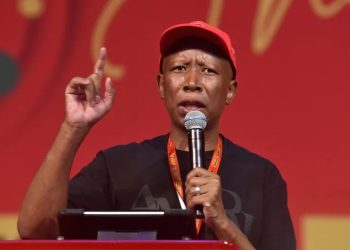African National Congress Youth League (ANCYL) leader Collen Malatji has called on South African Communist Party (SACP) Secretary-General Solly Mapaila to leave the tripartite alliance and join Jacob Zuma’s uMkhonto weSizwe (MK) Party.
Malatji’s remarks come amid growing friction within the alliance, as the SACP has openly criticized the ANC’s decision to form a Government of National Unity (GNU) with the Democratic Alliance (DA) and Freedom Front Plus, bypassing the Economic Freedom Fighters (EFF) and the MK Party.
Malatji’s Rebuke to Mapaila
Speaking at the Peter Mokaba Memorial Lecture in Khayelitsha, Cape Town, on Friday, January 10, Malatji accused Mapaila of undermining the ANC and suggested that he align himself with the MK Party instead.
“Solly and his friends must understand that they cannot destabilize the ANC. If he feels so strongly, he should join the MK Party alongside Floyd Shivambu,” Malatji said, referring to the MK Party’s Secretary-General, who has recently been at the center of controversy.
Malatji accused Mapaila of being a populist and insisted that the SACP remains a part of the mass democratic movement. “When we were at 63% [electoral support], they stood with us. When we dropped to 57%, they were still with us. But now, when we are under pressure, they abandon us and align with counter-revolutionary forces at the expense of our people,” he said, addressing a cheering crowd.
SACP’s Evolving Role
The SACP, a longstanding member of the ANC-led tripartite alliance with COSATU, has historically campaigned for the ANC in national and local elections. However, in December 2024, the SACP announced plans to contest the 2026 local government elections independently, signaling a shift in its relationship with the ANC.
Malatji dismissed any notion that the SACP belongs to Mapaila, asserting, “Solly will not take the SACP anywhere. He found it here. If he wants to leave, he can go, but the SACP remains rooted in the alliance.”
Alliance at a Crossroads
The ANC’s decision to partner with the DA and Freedom Front Plus in the GNU has sparked debate within its traditional allies, raising questions about the future of the alliance. While the SACP has voiced its discontent, Malatji’s remarks underscore the growing tension and competing visions for South Africa’s political landscape.
As the alliance faces mounting internal and external pressures, it remains to be seen whether these rifts will lead to a complete realignment or whether the partners can find common ground to move forward.






















